Carnival in darkness
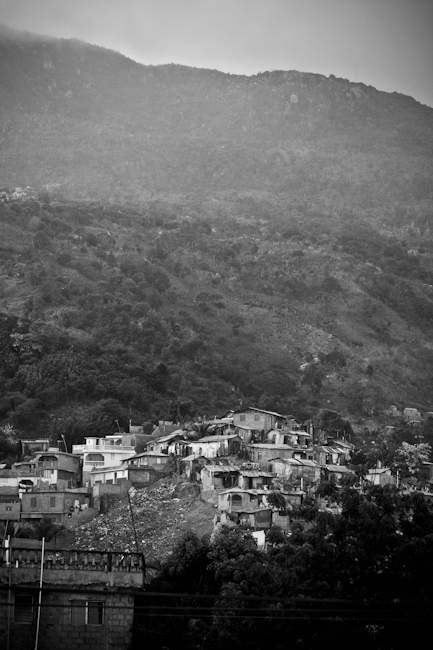
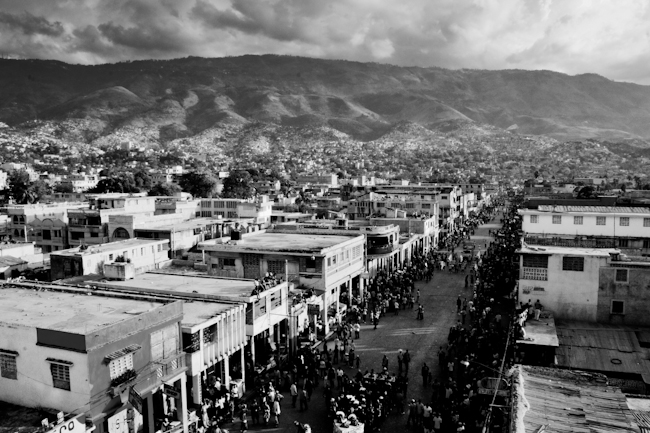

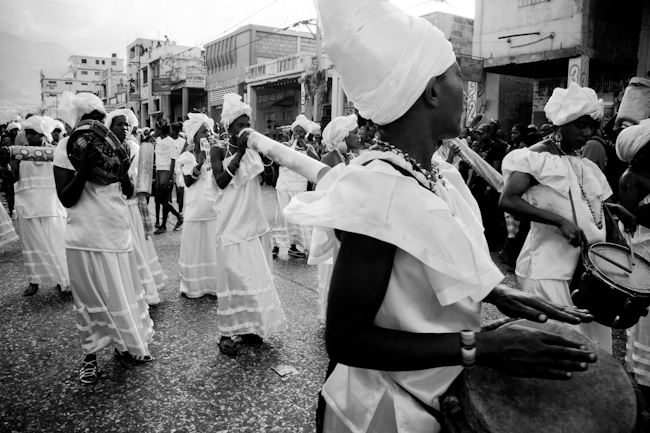

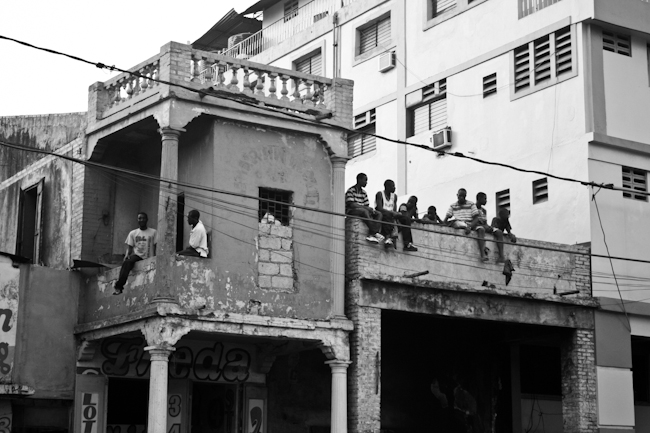
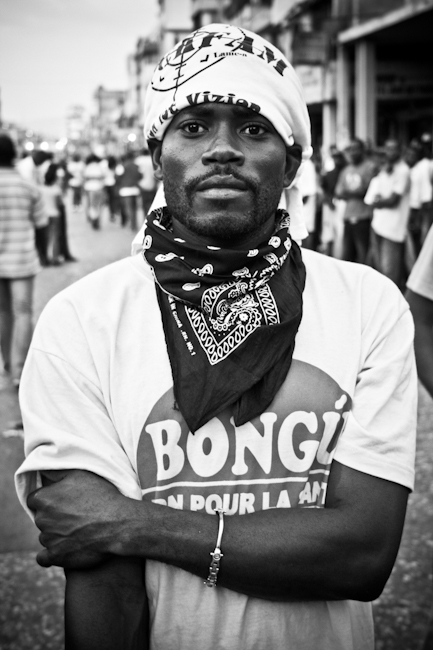
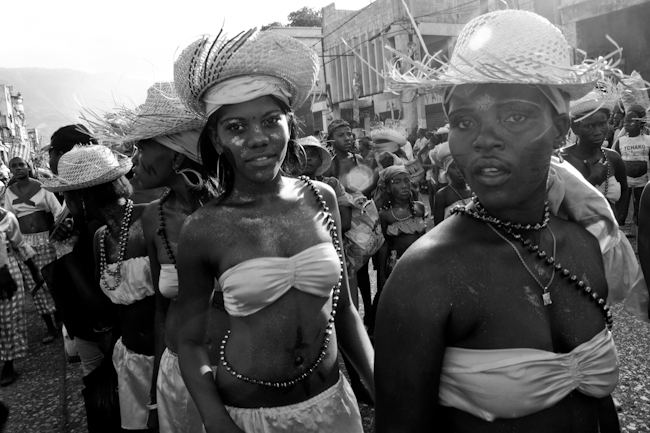

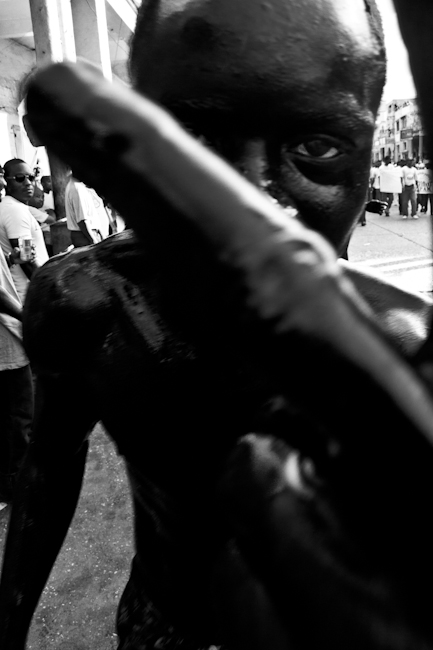

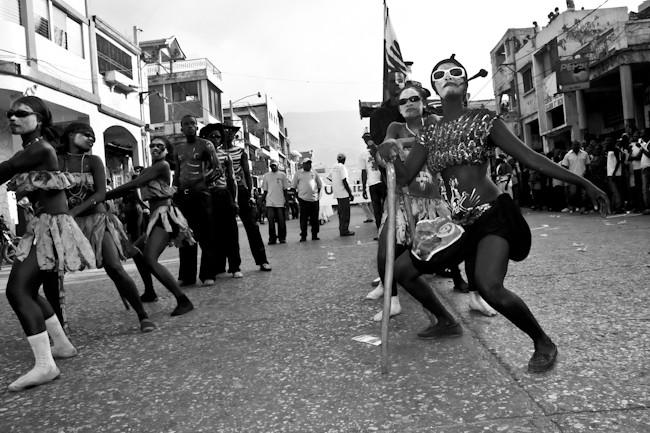
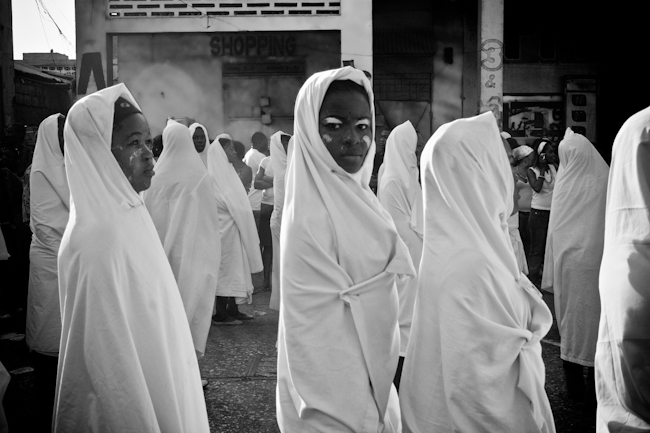

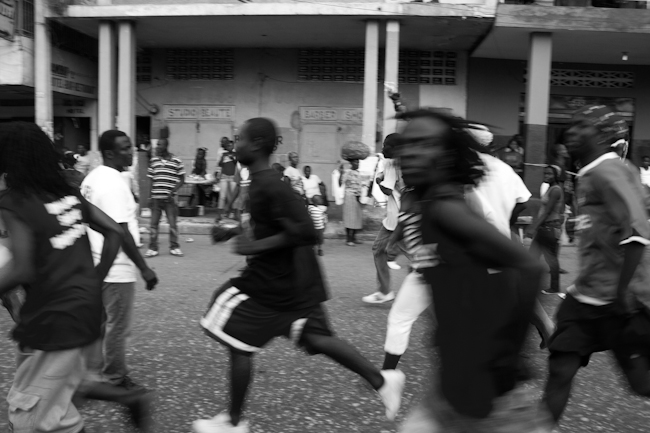
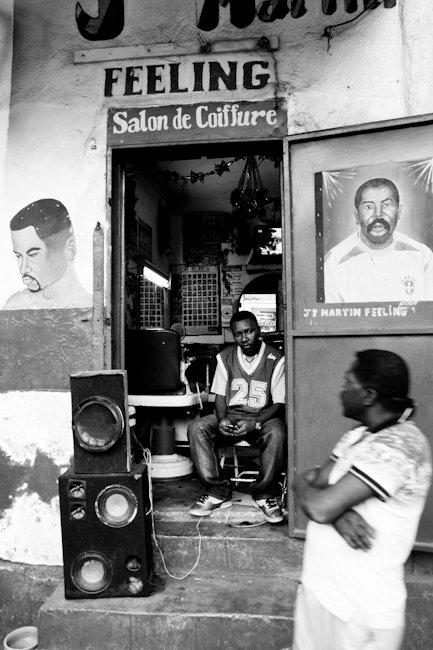
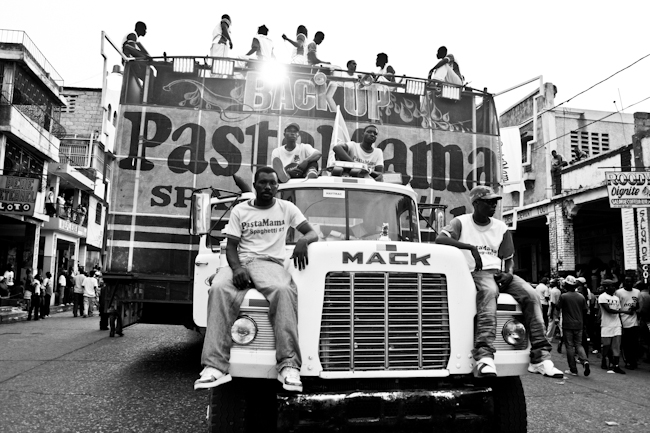
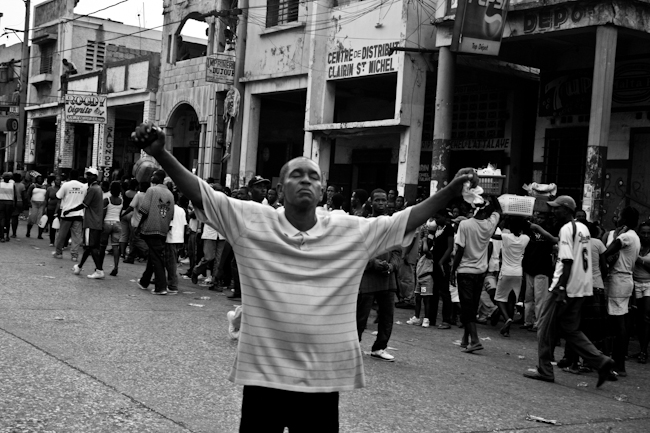
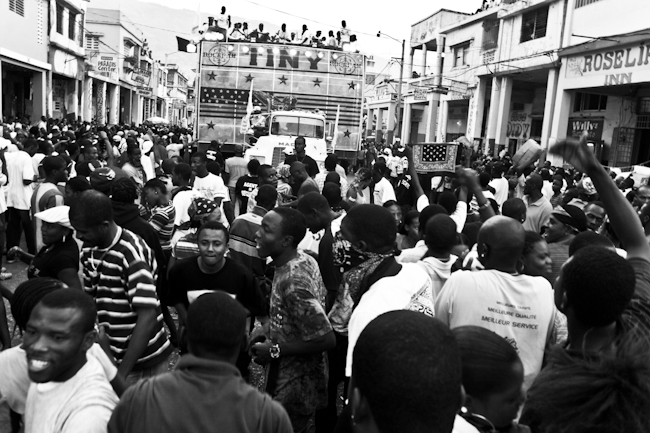
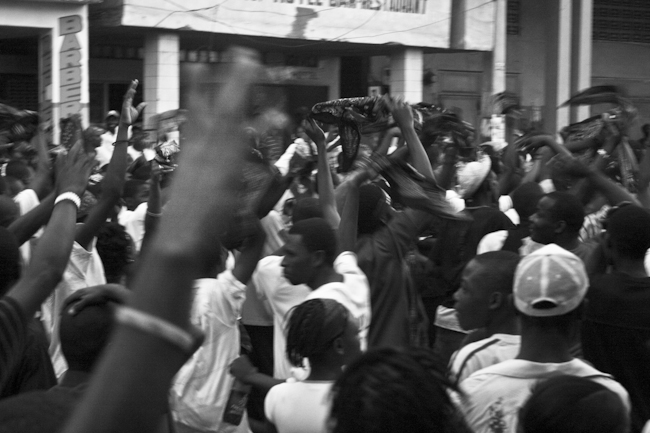
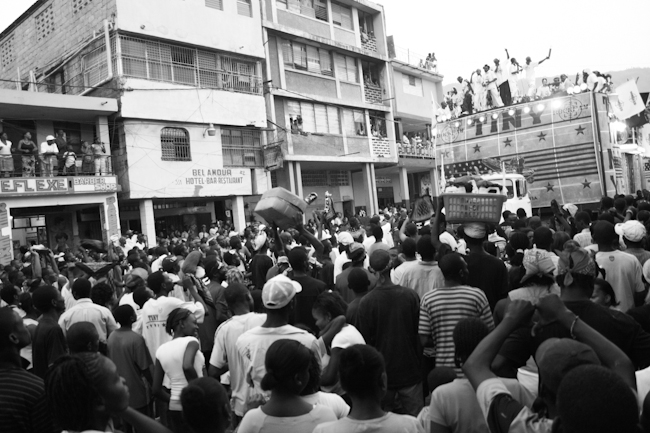

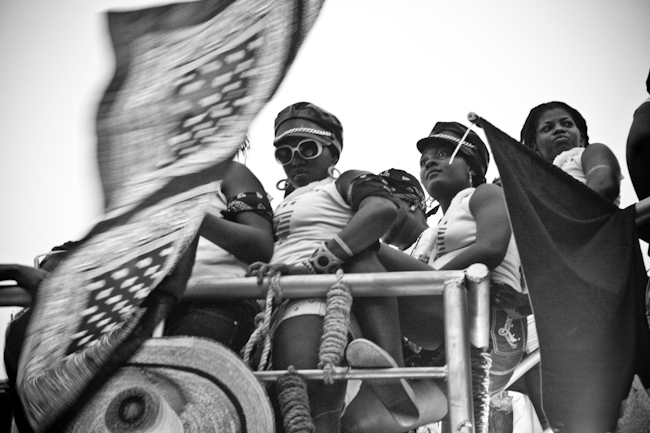
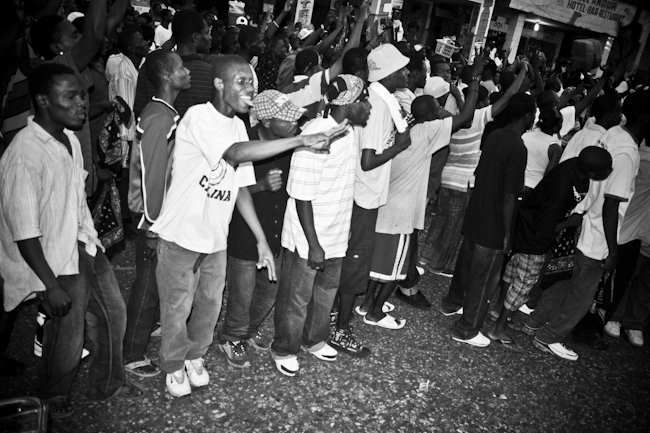

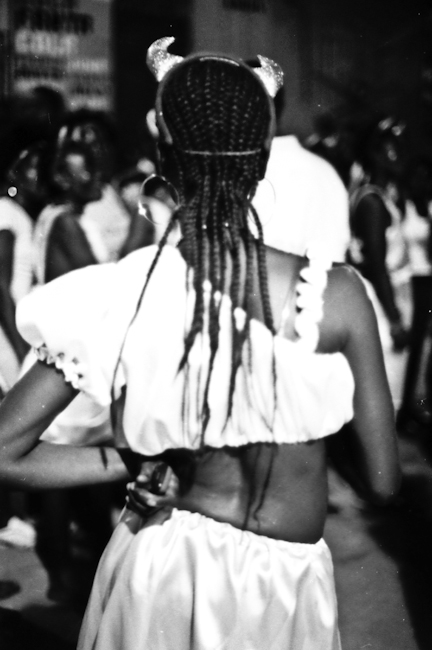
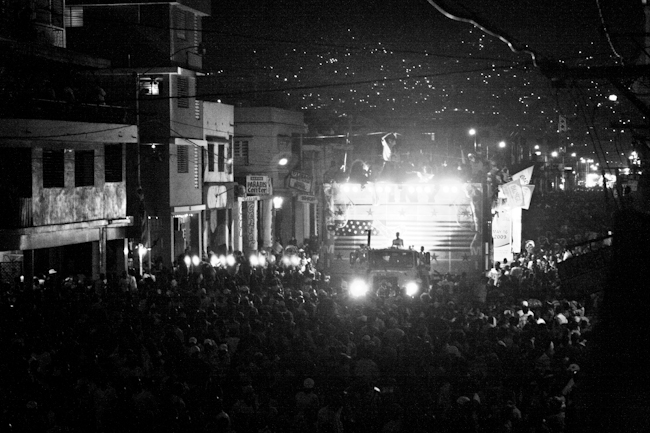
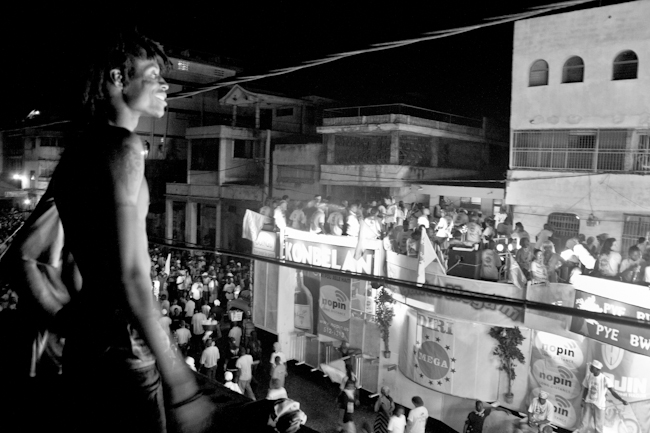

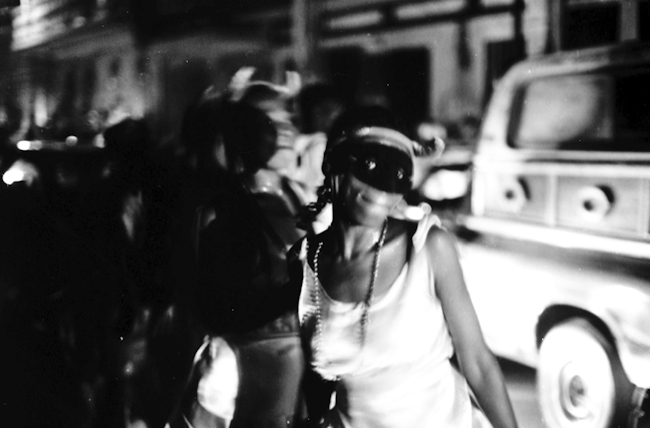
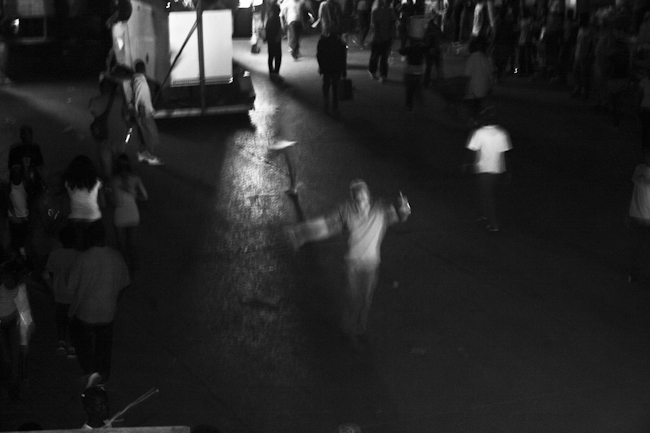
Haití. Carnival in darkness.
Photos. Sebastian Vilariño y Eduardo Chaco Panelli
Text. Agustina Vigano
On the streets of Port au Prince you can see destroyed buildings, people barefoot and half-naked selling anything, buses painted with argentinian football players like Maradona or Messi, or brasilian flags and Pele. Huge colorful walls hide the sadness of a ruin and devastated country and the daily life of punishment in this land that has no more natural resources.
Haiti shares the biggest caribbean island, the Isla Española, with Dominican Republic.
The contrast, once the “Massacre” river that divides them is crossed, is as going from heaven to hell.
Independence from french colony was in 1804 but the slave masses never reached power. Since then, white governors are guilty of homicides, corruption and fraude, hiding their racist hypocresy and their absolute lack of humanity. The only latinamerican country which independence was from the roots, with the slaves revolution, is today lots of people trying to survive among polluted rivers and not even able to breath clean air.
The absence of democracy, education and the extreme corruption –internal as well as from international organisms- have been sucking up from Haiti all the natural resources that ever existed along with the blood of it’s people since two centuries. And, as if this were not enough, the karma of this land bomb them with natural disasters-hurricanes, floods, earthquakes- eliminating what is left.
In 2004 in an act of extreme saturation, political violence and armed rebellion forced the resignation and exile of the president. A provisional government was imposed by the United Nations which patrol the cities “keeping order”. This organism stated in 2010 that Haiti is the 6th poorest country in the world, preceded by African nations.
The french colony left part of their language which was mixed with the african heritage, creating Creole as haitian language. The ancient traditions still survive, unlike it´s neighbour Dominican Republic, white didn’t mix with black(except for a very small minority).
If there is something to thanks the settlers is to bring the carnival, which the haitian took as their own feast and reinvented it.
Haiti in disguise for party
The city is surrounded by orange ground hills. On the slopes colorful houses are lit when the sun starts to hide and night approaches. Little white lights turns on, hundreds, thousands; they become stars in the dark night of carnival. Crowds go down to the streets dressed in carnival costumes, painted or masked; the colors vibrate in the gloom. Rastafari, christians, voodoo. Beliefs does not matter, neither does the differences: everybody gather on the streets to be part of the world’s biggest carnival.
On the main street a parade of huge trucks transports famous and high class people. Rap Creole sounds in massive speakers making the three-storey buildings vibrate. Through windows and roofs the neighbours watch the parade of “women-devils” dressed in white as carnival virgins. There are snakes, men on stilts, paper mache masks, thousands of children painted with dark oil or charcoal: hidden as night shadows their eyes shine.
Carnival is a time of joy and oblivion. The clock stops to travel to another reality where devils reign carnival and music invade the streets. But is also time to remember the fallen, relatives killed by natural and social calamities. People sing to their deads to be present, to don’t forget them or their past. They become alive and are part of this celebration. They also sing to not forget their own history and keep their tradition alive.
Drums plays “zouk” (a french creole and african fusion), people as a big mass of energy dances an hypnotic rhythm and enters a trance of voodoo dance that immortalizes the culture and haitian feelings.
The crowd screams. The feeling is massive, euphoric and floods the city. It is a scream of hate, of rebelion, of saturation. It’s a scream that says enough and says we are here. This night is the reason to keep fighting for a future, this night is the reason to stay in this land.
From the bowels, from the poisoned blood: “haiti, haiti!”
